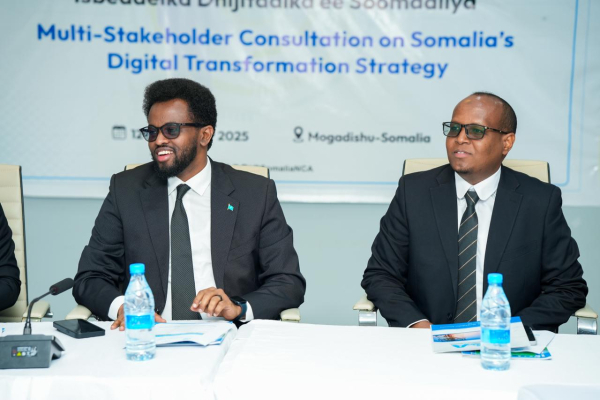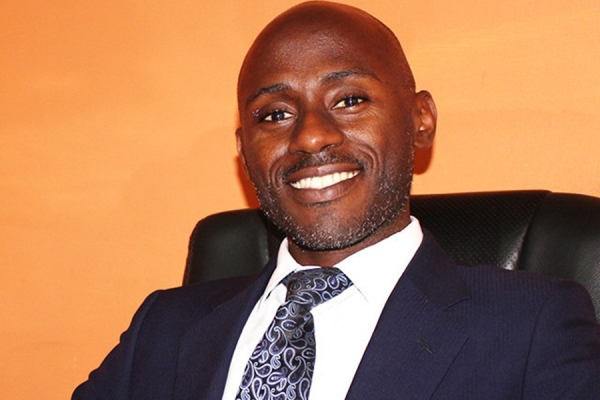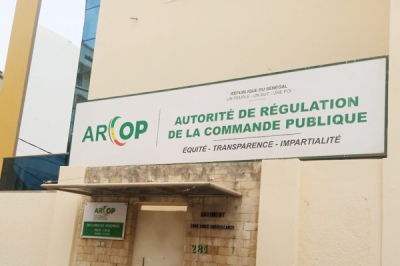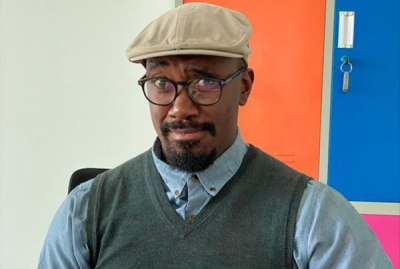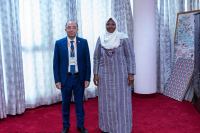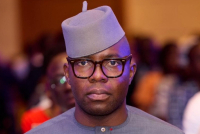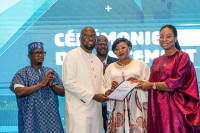- Somalia drafts 2025-2030 strategy to boost digital economy
- Plan builds on ICT gains like e-visas, QR payments, Starlink
- Aims to expand services, attract investment, create tech jobs
Somalia’s Federal Government is finalizing its Digital Transformation Strategy 2025-2030, aimed at consolidating past progress and accelerating the country’s integration into the regional digital economy. A two-day national consultation began on October 12 to gather stakeholder input before adoption.
According to Mohamed Adam Moalim Ali, Minister of Communications and Technology, the new framework will coordinate all national digital initiatives to ensure coherence and maximize the benefits of technological change.
“Our goal is to align digital projects, improve public services, and drive economic growth while preparing Somalia to play a regional role in the digital economy,” the minister said.
The strategy builds on the National ICT Policy and Strategy 2019-2024, which focused on expanding connectivity, developing digital skills, and supporting local content creation. That policy led to key achievements, including the launch of an e-visa platform, a universal QR code payment system, and improved internet access.
According to DataReportal, Somalia had 10.7 million internet users at the start of 2025, representing an internet penetration rate of 55.2%. The introduction of Starlink in August 2025 is expected to further enhance national connectivity.
Despite progress, digitalization remains limited. The UN E-Government Development Index ranks Somalia 191st worldwide with a score of 0.1468 out of 1, well below the African average of 0.4247. The ITU ICT Development Index also places the country among Africa’s least developed digital economies, at 33.7 out of 100 (July 2025 report).
The upcoming Digital Transformation Strategy 2025-2030 seeks to expand digital infrastructure, improve online public services, and promote innovation. It also aims to foster digital inclusion in education, health, agriculture, and finance, strengthen regulation, attract investment, and create jobs in the digital sector.
Samira Njoya
He builds digital tools to modernize financial management in local institutions. His solutions enable cooperatives and schools to automate their operations and monitor cash flow in real time.
Vincent Tumwijukye (photo) is a Ugandan technology entrepreneur active in the financial sector, serving as co-founder and chief executive officer of FutureLink Technologies (FLT).
Founded in 2005, FutureLink Technologies is a FinTech firm licensed as a payment system operator by the Bank of Uganda, the country’s central bank. The company develops digital solutions aimed at strengthening the financial resilience of low and middle-income populations across Africa through an accessible community-based digital financial platform.
FLT created SavingsPlus, a platform designed for financial cooperatives and microfinance institutions. It integrates a comprehensive suite of functionalities including savings, member share capital, loans, accounting, fixed asset management, expenses, SMS banking, receivables, investments, debts, and revenue. The solution also generates reports for both internal and external financial management.
The company also developed SchoolPlus, a financial management system for educational institutions. This tool streamlines the payment of school fees, tracks outstanding balances, and generates real time financial reports from a centralized platform.
In addition to his corporate role, Tumwijukye sits on the board of FITSPA Uganda, the association of the country’s financial service providers. He also chairs the Bank of Uganda’s national financial inclusion strategy working group.
Tumwijukye graduated from Makerere University in 2004 with a bachelor’s degree in mathematics and computer science. His company received the Platinum Award for Product Innovation of the Year in 2022, presented by the World Bank’s International Finance Corporation (IFC) and the SME Finance Forum.
Melchior Koba
• Senegal launches e-procurement platform to boost transparency
• The platform, APPEL, to digitize full tender process by January 2026
• Reform aligns with national plan to digitize 90% of services
Senegal’s Public Procurement Regulatory Authority (ARCOP) on Tuesday launched the pilot phase of its new electronic public procurement platform, APPEL (Achats Publics en Procédures Électroniques), as part of a broader effort to enhance transparency and strengthen governance.
The initiative aims to digitize the entire public procurement process, improving transparency, ensuring transaction traceability, and speeding up the handling of procurement procedures.
“We’ve been working on this reform for a year. Every week, we hold a technical meeting dedicated to the platform,” said Moustapha Djitté, Director General of ARCOP. “We want reliable indicators on tender processing times, savings achieved, business participation rates, and satisfaction levels among procurement stakeholders.”
The platform covers every stage of the procurement process, from publishing tender notices to awarding contracts. Designed to be modular, secure, and aligned with international standards, it draws inspiration from successful systems in Morocco, Rwanda, and Mauritius. ARCOP also plans to link it with other public databases, including those of the Treasury, tax authorities, and the commercial register, to reinforce transparency, traceability, and sound governance.
The project forms part of Senegal’s national digital strategy, known as the New Deal Technologique, which aims to digitize 90% of public services by 2034. Public procurement, representing between 15% and 20% of national GDP, is a major component of public spending and demands modern management to strengthen investor confidence in Senegal.
Full implementation of the APPEL platform is scheduled for January 2026. The reform is expected to make public procurement more transparent, predictable, and efficient. It should help reduce processing times, curb fraud, increase competition among companies, and generate substantial savings for the state, while reinforcing investor trust and promoting good governance in the public sector.
Samira Njoya
• Tanzanian entrepreneur created Safari Wallet to simplify travel payments
• Platform offers flexible installment options for safaris and holiday trips
• Also founded Place Listed and MyJobPass, and leads tourism tech initiatives
Eid John, also known as Iddy John, is a Tanzanian computer scientist and tech entrepreneur. He is the founder and CEO of Safari Wallet, a financial technology platform dedicated to the travel industry.
Founded in 2014, Safari Wallet enables users to book trips and tourist activities while offering installment payment options. The platform provides an integrated booking process and flexible payment plans, including split and post-travel payments, designed for clients whose immediate cash flow may not align with the high costs of safaris or beach stays.
The company aims to help local and diaspora travelers spread the cost of travel through structured payment plans that lower entry barriers without compromising service reliability or partner quality.
Operating at the intersection of travel technology and responsible financing, Safari Wallet broadens access to organized travel experiences while assessing customer solvency through digital tools and direct relationships with tour operators.
Beyond Safari Wallet, Eid John founded Place Listed in 2016, a platform connecting customers and businesses in the hospitality industry and helping them enhance their digital visibility. In 2019, he co-founded MyJobPass, where he serves as Chief Technology Officer, providing university students and graduates with skill-building and professional experience opportunities.
He is also Marketing Director of Kwe2Africa, a tourism marketing company, and organizes the annual Wiki Loves Africa photography contest in Tanzania. In addition, he leads activities of the Google Developers Group in Dar es Salaam and serves as Innovation, Technology, and Entrepreneurship Director of the Pan-African Tourism Council in Tanzania.
- Niger establishes National Cybersecurity Center to boost digital security
- CNAC to implement national strategy amid rising cyber threats
- Digital growth, cyberattacks surge; awareness and skills remain key gaps
The Nigerien government has approved the establishment of a National Cybersecurity Center (CNAC) to strengthen the country’s digital security. Two draft decrees, one creating the institution and another approving its statutes, were adopted by the Council of Ministers on Saturday, Oct. 11.
“The main mission of the National Cybersecurity Center is to oversee the implementation of Niger’s national strategy for securing and defending information systems and critical infrastructure, to foster a secure, resilient digital environment that supports the country’s economic and social development,” the Council of Ministers said in a statement.
The CNAC’s creation is part of the National Cybersecurity Strategy, adopted in December 2022. The strategy seeks to ensure “a sustainable and effective digital transformation in Niger” and to “build investor and public confidence in information and communication technologies.” Authorities see ICTs as a key driver of socio-economic development, a view shared globally and reinforced by the International Telecommunication Union (ITU), which emphasizes that strong cybersecurity is essential for countries to fully benefit from digital innovation.
The renewed focus on cybersecurity comes amid a rise in cyberattacks driven by the rapid expansion of digital services. In an August 2024 interview with Africa Cybersecurity Magazine, Aïssata Chanoussi, Director of Information Systems Security at the National Agency for the Information Society, said the financial impact of cyberattacks in Niger had increased by between 70% and 400% since 2022.
Digital adoption in Niger has accelerated sharply. From 2019 to 2025, the number of mobile subscribers grew from 9.81 million to 12.09 million in 2022, and then to 16.5 million in 2025, according to DataReportal. Over the same period, internet subscribers rose from 2.33 million to 3.72 million, eventually reaching 6.37 million.
The ITU’s Global Cybersecurity Index 2024 ranks Niger in the fourth tier (T4) out of five. While the country performs relatively well in its regulatory framework, further progress is needed in technical and organizational measures, capacity building, and cooperation. Chanoussi has previously highlighted public awareness and training local talent as the main challenges for improving cybersecurity resilience in Niger.
Isaac K. Kassouwi
-
Algerian pharmacists urge rollout of digital prescription system
-
Plan targets psychotropic drug trafficking, prescription fraud
-
Law 23-05 backs e-registry; physician integration still pending
SNAPO, the Algerian union of retail pharmacists, is renewing its push for a national digital prescription system to regulate the prescribing and dispensing of psychotropic drugs. Union spokesperson Karim Merghemi said the measure is vital to protect pharmacists and curb the trafficking of controlled substances.
“The digitization of prescriptions is essential,” Merghemi said during a meeting in Algiers organized by the Algerian Pharmaceutical Distributors Association (Adpha). He noted that paper prescriptions remain prone to fraud, with some patients obtaining multiple prescriptions from different doctors to supply the black market.
The drive for electronic prescriptions is backed by Law 23-05 of 2023, which mandates a national electronic registry for prescriptions of narcotics and psychotropics, accessible to healthcare providers and regulators. SNAPO said the module for retail pharmacies has been completed, but integration on the physicians’ side is still awaiting data-protection clearances.
Meanwhile, the government announced plans last year to develop a national digital platform for managing retail pharmacies. The initiative aims to monitor pharmacies, track drug availability, and improve oversight of psychotropic drugs and antibiotics, complementing efforts to modernize the pharmaceutical sector.
If implemented, these projects could reshape Algeria’s pharmaceutical landscape. SNAPO considers the e-prescription system a key tool for securing the drug supply chain and protecting pharmacists. A swift rollout, it says, would help curb trafficking, particularly of psychotropics such as ecstasy, reinforce regulatory compliance, and ensure that only legitimate patients can access such treatments.
Samira Njoya
- Tunisia proposes Smart City tech hub project in Burkina Faso
- Feasibility study planned to assess infrastructure, funding needs
- Project aims to boost startups, jobs, and digital services
Burkina Faso’s Minister for Digital Transition and Communications, Aminata Zerbo/Sabane, met in Ouagadougou on Thursday, October 9, with a Tunisian delegation. The delegation, from the organization TUCAD and led by co-founder Anis Jaziri, presented a proposal for a Smart City project in the country.
The initiative centers on creating a digital technology hub that would draw on Tunisian expertise to support local startups, incubators, and accelerators.
“Tunisia already has extensive experience and a dynamic ecosystem for supporting startups, incubators, and accelerators. We aim to share this expertise with Burkina Faso,” Jaziri said. “We hope the project will move forward soon so we can help finance and implement it,” he added, stressing the importance of technical cooperation and partnership.
Both sides agreed that their technical teams would carry out an in-depth feasibility study covering technical needs, infrastructure requirements, financing options, and operational support mechanisms.
The proposal comes amid rapid urbanization and the growth of digital technologies across Africa. An increasing number of countries are adopting Smart City models to address challenges in mobility, energy, and urban management. These initiatives combine digital infrastructure, improved public-service management, data platforms, and local innovation to enhance quality of life and promote sustainable cities.
According to data from the German business-intelligence platform Statista, Africa’s Smart City market is expected to generate $1.5 billion in revenue by 2025 and reach $2.36 billion by 2030, an average annual growth rate of 12%. Such projects often rely on digital tools to improve mobility, waste management, public safety, and connectivity.
If implemented, the TUCAD Smart City project could accelerate Burkina Faso’s ongoing digital transformation. It would create technology jobs, boost private-sector competitiveness, and improve access to digital public services, while strengthening infrastructure such as fiber-optic networks and data centers. The project could also serve as a model for sustainable digital urban development in other Burkinabè cities.
Samira Njoya
Through his initiatives, he is transforming how local companies create value and contribute to the continent's economic development.
Tantchonta M’PO is a Beninese computer scientist, enterprise architect, and serial entrepreneur who founded Kaory Ventures Holdings, an incubator and accelerator for digital and technology businesses based in West Africa.
Established in 2018, Kaory Ventures Holdings supports the creation, development, and investment in African companies with viable economic models and significant social impact. The firm builds digital and traditional ecosystems in growing sectors by providing financial, technical, and commercial support. He supports small and medium-sized enterprises (SMEs) to foster their growth and contribution to the economic empowerment of young people through job creation and training.
M’PO is also the co-founder and CEO of Pivotech, a startup launched in 2016 that specializes in enterprise digital technologies. Pivotech has developed two key solutions: Konta, a business management and control platform, and Grand Marché, an e-commerce platform dedicated to selling local products.
In parallel, he directs the "Strategic Architecture Consulting" department at Benin’s Agency for Information Systems and Digital (ASIN). In 2015, he also co-founded KOOmaaKiti, an online purchasing platform launched in Guinea, where he served as Technical Director until 2017.
M’PO earned a master's degree in Advanced Information Systems from the iaelyon School of Management in 2007, and completed a doctorate in Information Technology from Téluq University in Canada in 2016. His career began in 2007 at Orange Business Services in France as an application developer.
The following year, he joined financial technology company Worldline Global as an application architect. In 2014, he became a Solutions Architect and Project Manager at The Other Store (The Oz), an e-commerce agency. He subsequently worked as an enterprise architect for several companies in France, including the marketing firm MullenLowe Group France and LOCAM, a subsidiary of th banking group Crédit Agricole.
Melchior Koba
-
The tech entrepreneur leads Qwiper, a Niamey-based digital solutions startup.
-
The company offers AI-powered tools, cybersecurity, and cloud infrastructure services.
-
Its locally built super-app centralizes key digital services for users and businesses.
Issoufa Abdou, a Nigerien computer scientist and tech entrepreneur, is the founder, CEO, and CTO of Qwiper, a digital transformation startup launched in May 2024 and headquartered in the Lazaret district of Niamey.
Qwiper develops technological solutions to help organizations and individuals advance their digital transformation. The company designs tools to streamline processes, improve efficiency, and support business growth.
The startup provides artificial intelligence solutions and application security services to protect infrastructures and sensitive data. It manages the design, migration, and administration of optimized infrastructures, secure backups, and managed services for servers, emails, files, and databases.
Qwiper has also created a fully homegrown national super-app powered by AI, which centralizes essential digital services to simplify daily life. The app offers access to news, local networks, messaging, a marketplace, job offers, and events. A business-oriented version, Qwiper POS, supports sales tracking, inventory management, finance monitoring, and employee oversight.
Abdou holds a master’s degree in software engineering from the Private School of Engineering of Niger, earned in July 2025. His professional journey began in 2020 at Karatou Post Bac, an educational technology startup, where he worked as a software developer.
He later joined Novatech Niger as a web and mobile developer from 2020 to 2024 and moved to Otechma in 2022, where he became a software developer before being promoted to technical director in 2024. In 2023, he also served as a trainer in artificial intelligence, robotics, and the Internet of Things (IoT) for the United Nations Economic Commission for Africa in Niger.
-
The new body will oversee and promote electronic sports in the country.
-
The initiative highlights esports as a driver of innovation and youth opportunity.
-
It follows major national gaming tournaments backed by Orange Guinea.
Guinea has officially launched its Esports Federation, the national body overseeing electronic sports. Rose Pola Pricemou (pictured, right), Minister of Posts, Telecommunications and the Digital Economy, attended the official launch ceremony on October 11 alongside several government officials and representatives from the digital, sports, and cultural sectors.
“This initiative marks an important step in recognizing esports as a promising sector that combines digital inclusion, innovation, creativity, and economic opportunities for Guinean youth,” the ministry said in a statement on its Facebook page.
The launch comes about three months after the first national tournament, “FIFA Champions Guinea 2025,” held on June 27–28 at Chapiteau By Issa. Telecom operator Orange Guinea is also set to organize the “Orange FC Championship 2025” from October 25 to 26 to crown the country’s best EA FC 26 player. The winner will represent Guinea at a grand final in Morocco, featuring champions from 16 other Orange subsidiaries across the Middle East and Africa.
During the launch event, Minister Pricemou emphasized the need to support this growing sector, mobilize partners and sponsors, and encourage Guinean youth to seize new opportunities. According to a report by African game publisher Carry1st and market research firm Newzoo, Africa’s video game market reached $1.8 billion in 2024, up 12.4% from the previous year, compared with global growth of 2.1% over the same period.
More...
In a world where artificial intelligence is reshaping entire sectors, some entrepreneurs are successfully transforming traditional industries by connecting cutting-edge technology with consumers' everyday needs.
Ahmed Badaoui Badis is a Tunisian entrepreneur specializing in artificial intelligence (AI) applied to health and wellness. He is the co-founder and CEO of Vistasy Clinic, a company that develops technology to provide accessible, personalized dermatological analysis.
Founded in 2021, Vistasy Clinic employs AI algorithms, combining image processing, computer vision, and cloud computing, to analyze facial and skin characteristics. This approach generates personalized diagnoses comparable to those performed in a medical setting, but accessible via a smartphone or smart mirror.
The analysis process uses a simple, intuitive user interface, delivering detailed reports to help consumers understand their skincare plans. The method is intended to democratize access to advanced dermatological analyses typically confined to specialized clinics.
Vistasy Clinic targets both professional and consumer markets with tailored solutions. For the professional market, the company offers smart mirrors for use in cosmetic brand retail spaces. For general consumers, a mobile application allows users to perform personalized facial analyses from home.
Badis graduated from the National School of Engineers of Tunis (ENSIT), where he earned a master's in industrial computing and automation in 2015, followed by a Ph.D. in electrical engineering in 2019.
He began his professional career in 2016 at Datavora, an e-commerce data company, working as a data scientist and data science consultant. In 2018, he joined the Finnish company Recon AI as a data scientist and computer vision engineer. The following year, he held the same roles at Incubit, a technology company based in Japan. Most recently, in 2020, he worked as a computer vision engineer at the Tunisian software development firm Panthera.
Melchior Koba
The Algerian engineer has established himself in recent years as a leader in bridging the gap between scientific research and practical application. His work explores how technology can address local needs without relying on imported solutions.
Adam Debba is an Algerian technology entrepreneur and the founder and CEO of Qareeb, a company specializing in artificial intelligence (AI), edge computing, and the Internet of Things (IoT).
Founded in 2023, Qareeb designs AI solutions engineered to operate locally without transferring data to remote servers. This edge computing approach processes information directly on site, enhancing data security while reducing cloud reliance and costs.
The company's flagship product, Q-Farming, is a smart agriculture system that helps farmers optimize water usage and improve yields. Utilizing LoRa technology, Q-Farming can transmit data over distances up to 30 kilometers, even in areas without mobile coverage. Soil-installed sensors continuously measure moisture, temperature, and soil composition. A central system analyzes this information to automatically determine irrigation needs.
Qareeb is also expanding into smart security. Q-Vision is a surveillance system designed to identify unusual behavior and send real-time alerts. Meanwhile, Q-Access offers a multifunctional access control solution. The system is compatible with various equipment and can perform facial recognition, read RFID cards, scan QR codes, and analyze fingerprints.
Debba holds an engineering degree in hydraulics from the National Polytechnic School of Algeria and earned a doctorate in fluid mechanics from the French engineering school IMT Atlantique in 2017.
His professional career includes roles as a research engineer at the French research organization Armines, starting in 2013. In 2018, he joined Altran (now Capgemini Engineering), where he worked on air circuit modeling before becoming a systems engineering team leader a year later. From 2020 to 2023, he served as a technical manager at Expleo Group, a French engineering and technology consulting firm.
In 2024, Debba received several awards, including first place at the Algeria Startup Challenge Greentech Challenge and first place at TechWadi. Representing Algeria, he also took second place at the Arab IoT & AI Challenge and won the Innov'Up award at the TotalEnergies Startupper Challenge.
Melchior Koba
• Cameroon launches Climate Innovation Hub to boost green solutions
• CAMCIH to support research, startups in renewable energy, agriculture
• Aims to cut climate risks, train youth for green economy jobs
Cameroon Climate Innovation Hub (CAMCIH), a non-governmental organization dedicated to promoting climate innovation and sustainable development, was officially launched on Thursday, October 2, at the ICT University in Yaoundé.
Housed within the institution, the hub aims to strengthen research, technology, and green entrepreneurship to deliver practical solutions to Cameroon’s environmental and economic challenges.
CAMCIH will function as an incubation and collaboration platform for researchers, young innovators, businesses, and public policymakers. It will support the development of local solutions in key areas such as renewable energy, sustainable agriculture, waste management, and urban resilience. The center also plans to offer training and capacity-building programs to equip young people with the technical and entrepreneurial skills required for green technologies.
The launch comes as Cameroon faces worsening climate impacts, including recurrent flooding, droughts in the North, and declining agricultural productivity. According to the Global Center on Adaptation (GCA), the country could lose between 4% and 10% of its GDP by 2050 if effective adaptation measures are not adopted.
The main objective of CAMCIH is to position Cameroon as a regional leader in climate innovation, able to turn scientific research into economic opportunities. By focusing on green technologies and young innovators, the initiative aims to reduce the country’s climate vulnerability while promoting sustainable and inclusive growth.
Samira Njoya
The South African entrepreneur is proposing a simple solution tailored to local realities. His approach is transforming payment practices across Africa in a context where hurdles are slowing financial inclusion.
South African technology entrepreneur and blockchain engineer Julian Kanjere is co-founder of Mandla Money, a company reshaping how people transact across Africa by focusing on simplicity and accessibility.
Founded in 2019, Mandla Money operates on an alternative model, bypassing complex applications and bank cards. Instead, users can send and receive digital money via WhatsApp or SMS, making transactions possible even for those who only own basic feature phones.
Mandla Money has expanded beyond simple digital wallet functionality to address concrete needs on the continent. Its web application allows governments and humanitarian organizations to quickly distribute financial aid simultaneously to thousands of recipients.
The technology also facilitates cross-border money transfers. This enables a worker in South Africa to send funds to family in Zimbabwe or Mozambique, circumventing traditional, often costly and slow, transfer services.
In addition to his entrepreneurial activities, Kanjere is a blockchain engineer at South Africa's Council for Scientific and Industrial Research (CSIR). He also serves as an adjunct lecturer at the University of Cape Town, where he teaches on financial technologies and cryptocurrencies.
Kanjere began his professional career in 2013 as a software developer at the investment management firm Allan Gray Proprietary. From 2015 to 2020, he held roles as a software engineer and later as a technical sales and projects manager at the technology company Hexagon Asset Lifecycle Intelligence.
Melchior Koba


